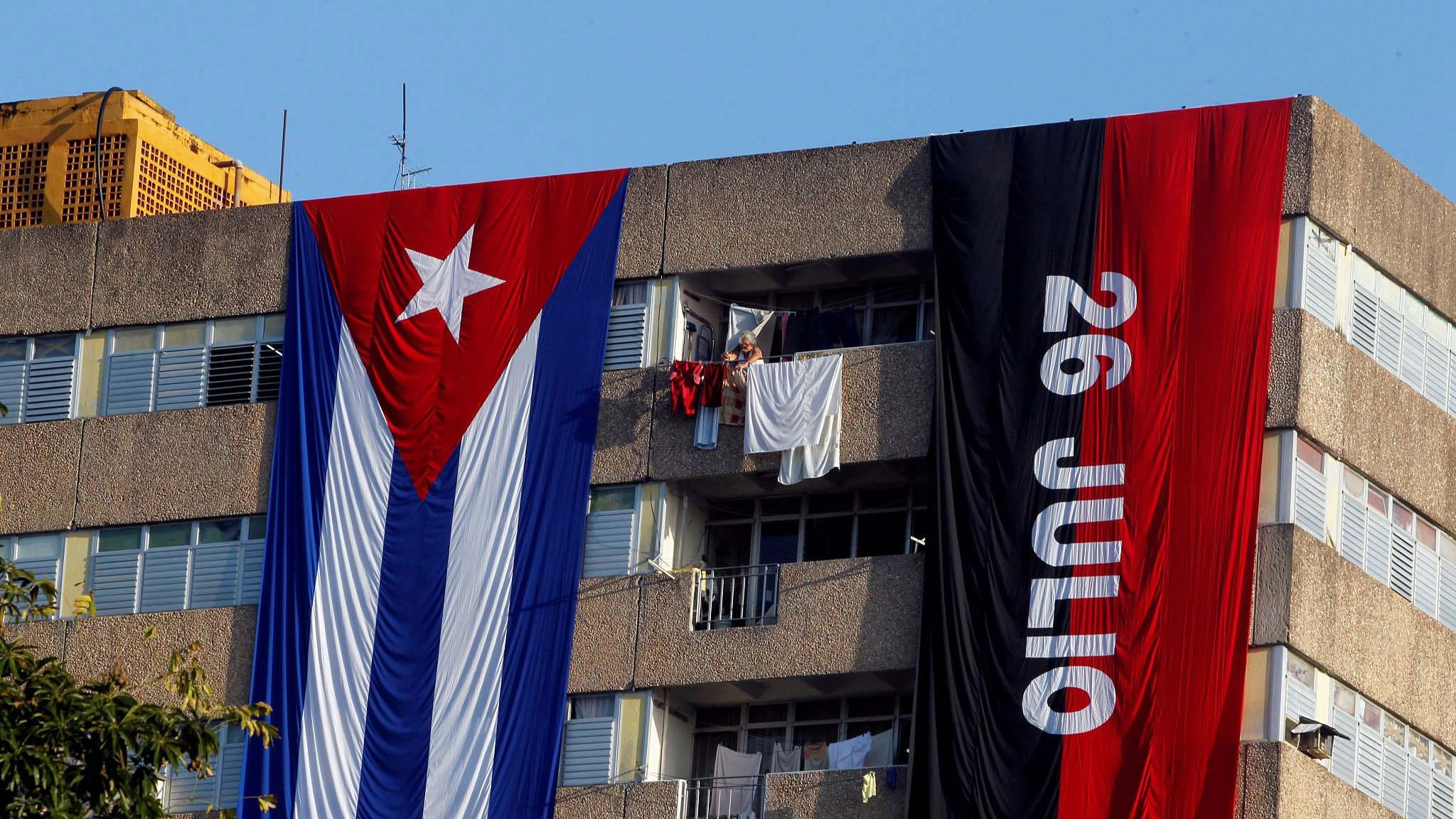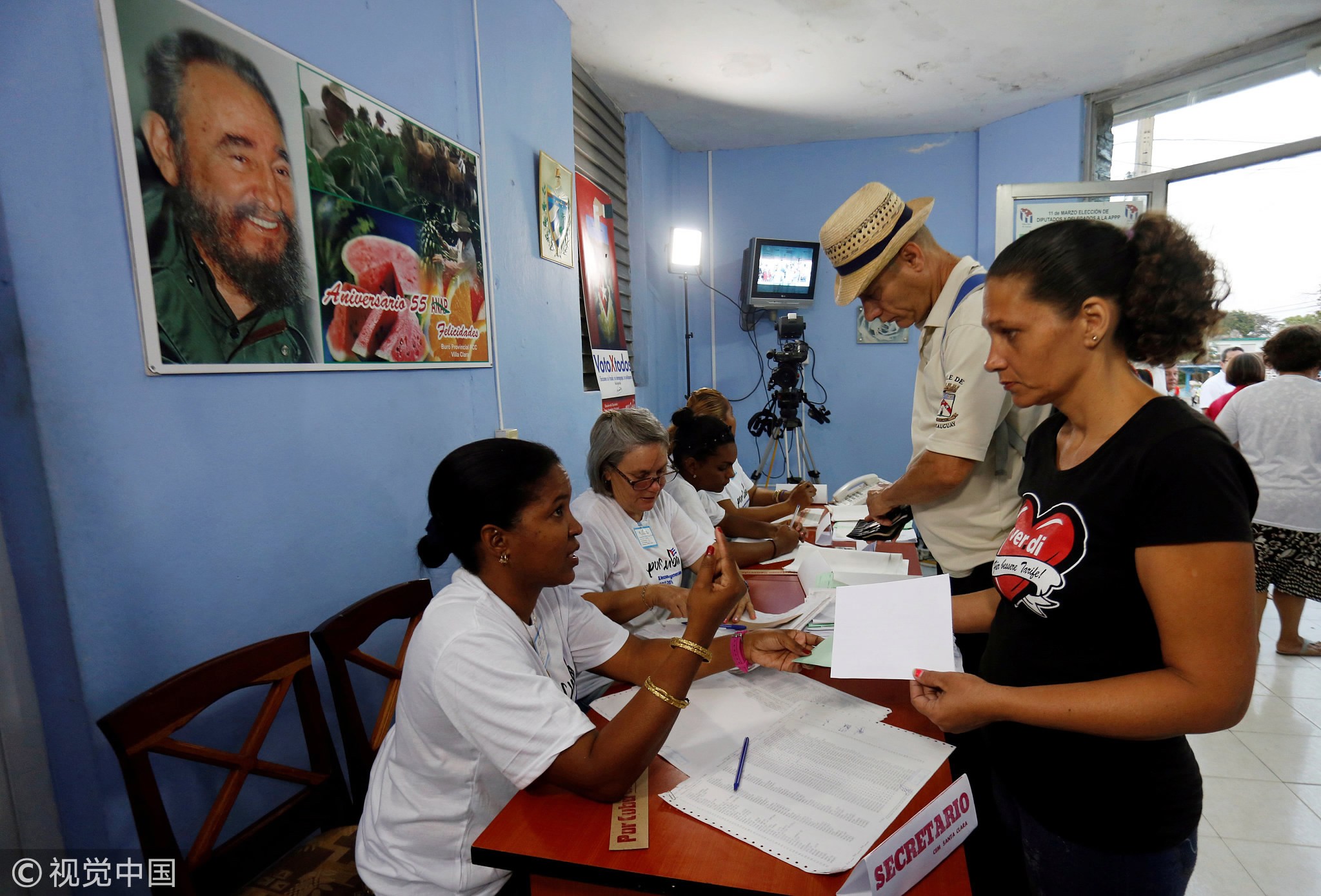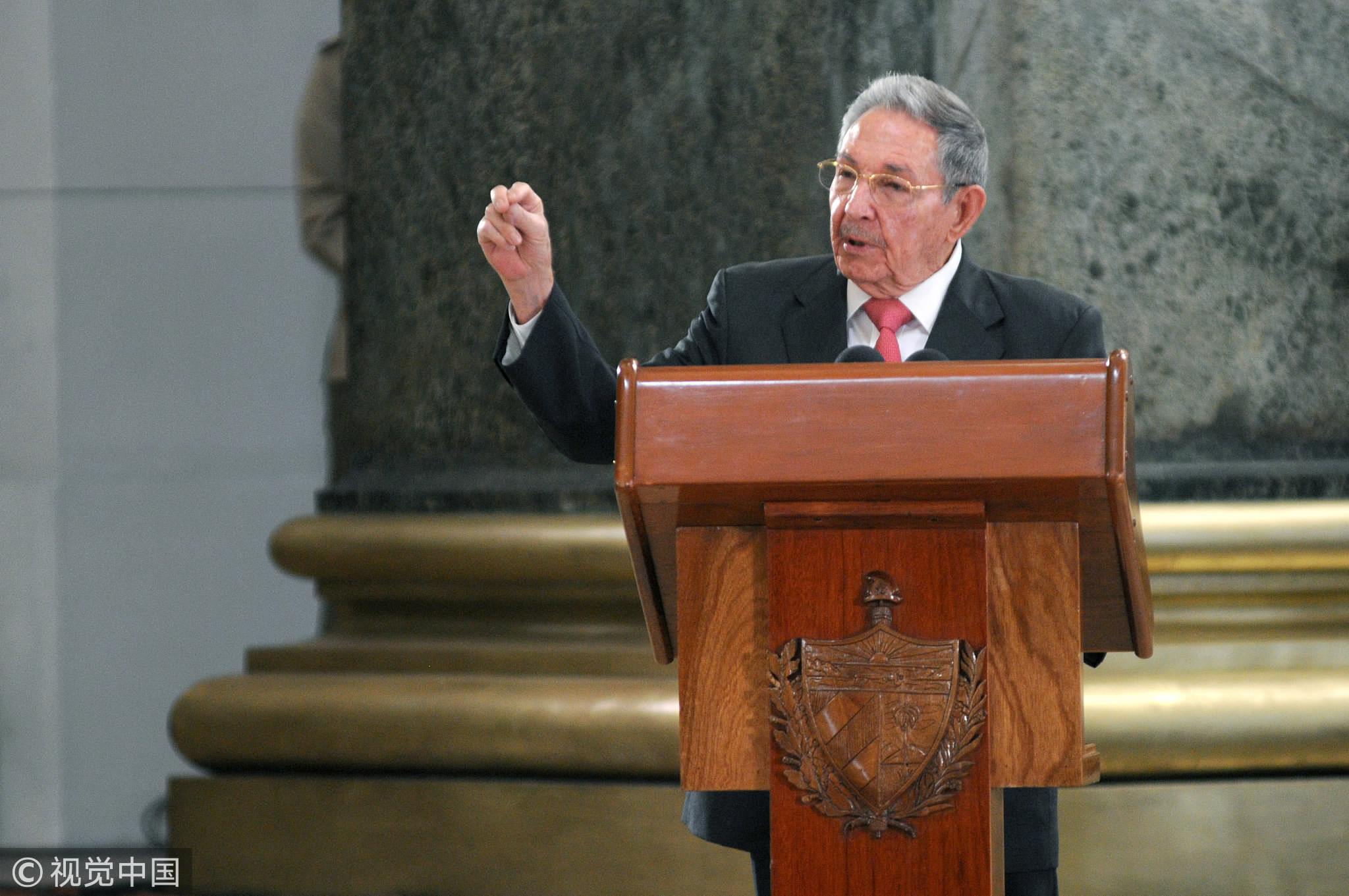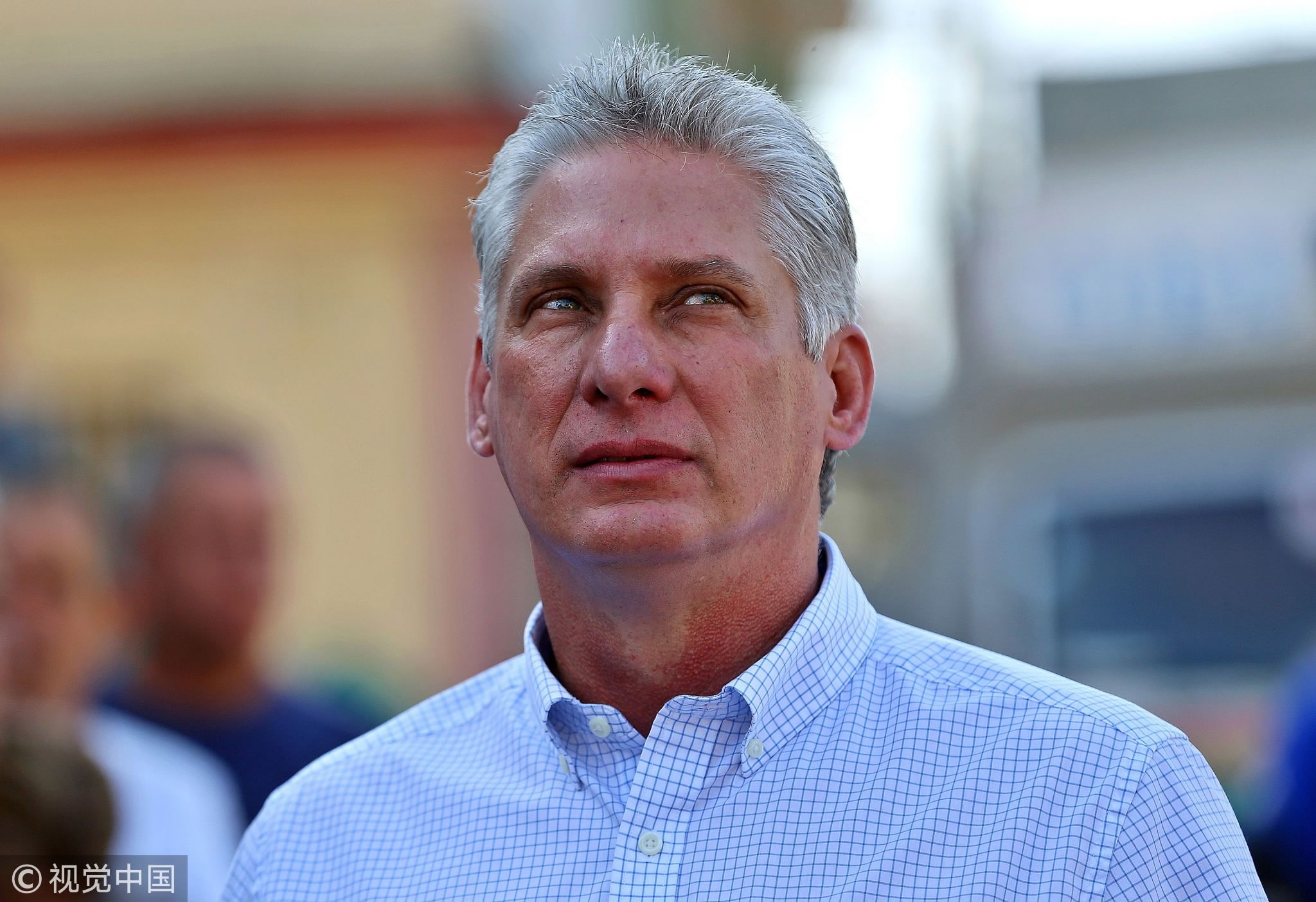
Opinions
11:02, 12-Mar-2018
Opinion: How will the new leadership affect Cuba?
Guest commentary by Jiang Shixue

March 11, 2018 will definitely be remembered by the Cuban history. On that day, more than 8 million eligible voters in Cuba, one of the five socialist countries in the world, will elect 605 members of the National Assembly of People’s Power. Then, on April,19, this legislative body will elect among themselves those who will take the positions of the Council of State, including the country's president.
It is believed that, unlike in the West, the designation of the candidates in Cuba is based on merit, abilities and the commitment of the people, and nobody exchanges empty promises for votes, or boasts of his abilities to get supporters. Therefore, “this is the true and exceptional face of what we proudly call socialist democracy,” the official daily newspaper Granma wrote.

People register at a polling station to cast their votes during an election of candidates for the national and provincial assemblies, in Santa Clara, Cuba on March11, 2018. /VCG Photo
People register at a polling station to cast their votes during an election of candidates for the national and provincial assemblies, in Santa Clara, Cuba on March11, 2018. /VCG Photo
Starting from April, for the first time in nearly 60 years, the Cuban head of state will not come from the Castro family as Raul Castro, 86, will step down from this position, a promise he made in 2013. It is believed that the new Cuban president will be the current First Vice President Miguel Diaz-Canel, born in 1960, one year after the Cuban revolution.
In July 2006, due to health reasons, Cuba's legendary leader Fidel Castro handed power to Raul Castro, his younger brother. At that time, the United States was not happy about it, saying that there should be a transition, not a succession. Needless to say, transition meant power transition from Fidel to somebody else other than Raul or even from socialism to capitalism.

Cuban President Raul Castro addressing the audience during a ceremony where he spoke about leaders of the Cuban revolution with the honorary title of Hero of Labor of the Republic of Cuba, at the Capitol in Havana, Cuba Feb.24, 2018. /VCG Photo
Cuban President Raul Castro addressing the audience during a ceremony where he spoke about leaders of the Cuban revolution with the honorary title of Hero of Labor of the Republic of Cuba, at the Capitol in Havana, Cuba Feb.24, 2018. /VCG Photo
As a matter of fact, when Fidel was still in power, he was often asked what would happen after he passed away. He replied that when the artist dies the painting will still be on the wall, indicating that Cuba will stick to the socialist system.
On the whole, Raul has successfully maintained the legacy of his brother though he undertakes relatively bolder steps to reform the economy. In this regard, Fidel’s retirement did not mean that the post-Castro era arrived.
After April, Raul will keep the important position of First Secretary of the Communist Party of Cuba until 2021. Therefore, even though Diaz-Canel will be the new head of state and it is likely that Raul’s fellow revolutionaries will also retire from the government, marking a first-ever generational power shift in this Caribbean island, it is still too early to say the post-Castro era is a reality.
No one will be surprised if Diaz-Canel becomes the new president of Cuba. But expectations on him are high. The daunting task would be in the economic field. The urgency can be explained by two facts: On one hand, many kinds of basic needs in Cuba are still on ration; on the other, he does not possess as much charisma as the Castro brothers. So he should not disappoint the Cuban people by raising their living standards.

Cuba's First Vice President Miguel Diaz-Canel queues at a polling station in Santa Clara, Cuba on Mar.11, 2018. /VCG Photo
Cuba's First Vice President Miguel Diaz-Canel queues at a polling station in Santa Clara, Cuba on Mar.11, 2018. /VCG Photo
Some years ago at an international conference in London, I heard a Cuban official describing the reality of Cuba in the following two sentences: In Cuba it is easier to do a heart transplantation than getting a pill of aspirin, and it is easier to have a university diploma than buying a ball pen.
This description vividly explains the contrast between the harsh economic condition and excellent social welfare. Diaz-Canel must maintain the social benefits and improve the economy.
No major changes will occur for Cuba’s foreign diplomacy. The Trump administration is unlikely to sever diplomatic relations with Cuba, but will continue to exert pressure on Cuba to undertake more economic and democratic transition. The possibility of lifting the US sanction against Cuba is slim. Undoubtedly, this sanction, which is called embargo by the US, but considered a blockade by Cuba, is a two-edge knife hurting both sides.
Chinese ties with Cuba will proceed as usual. Indeed, over the past one or two decades, this bilateral relationship based on win-win cooperation is less and less ideological.
(The author is the director of the Center for Latin American Studies at Shanghai University.The article reflects the author’s opinion, not necessarily the views of CGTN.)

SITEMAP
Copyright © 2018 CGTN. Beijing ICP prepared NO.16065310-3
Copyright © 2018 CGTN. Beijing ICP prepared NO.16065310-3